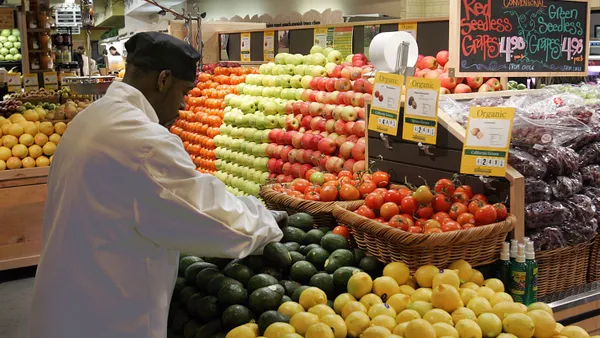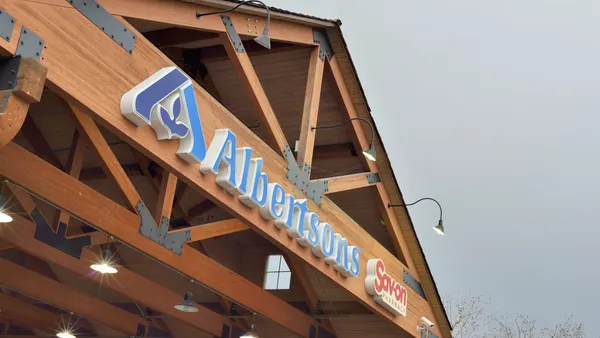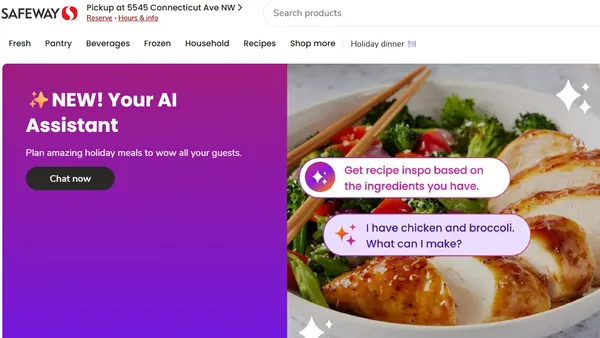Dive Brief:
- Meijer is currently installing a micro-fulfillment center in partnership with supply chain company Dematic, according to a press release. The retailer, which did not disclose the location of the facility, is the latest to pilot micro-fulfillment technology in an effort to improve the efficiency of online order fulfillment.
- Dematic's first micro-fulfillment solution fits into spaces as small as 10,000 square feet and can be constructed in around 12 weeks, the company said. The technology leverages Dematic's existing hardware, including its multishuttle units and goods-to-person technology, and integrates with a new software system that connects with existing systems and facilities.
- The micro-fulfillment technology will help Meijer maximize space in its stores, expand online shopping options and keep pace with customer demand for personalized shopping solutions, said Sid Handa, Meijer's director of strategic supply chain initiatives, in a statement.
Dive Insight:
Dematic is the latest company to jump into micro-fulfillment technology, joining a field of competitors eager to sign retailers as the race for faster, more efficient e-commerce fulfillment heats up.
The company has the advantage of longstanding deals and infrastructure already in place with grocers like Safeway. In an interview with Grocery Dive at last month’s Groceryshop conference, Matt Walker, program manager with Dematic, said it hopes to leverage those partnerships along with its existing fulfillment technology — including automated solutions like robotic shuttles — to become a leader in the fast-evolving space.
Dematic currently has a pilot micro-center up and running in Salt Lake City. Walker said the company is focused on building micro-hubs inside existing store spaces, utilizing between 10,000 and 12,000 square feet. Ideal candidates are retailers that do at least $10 million in online revenue and have multiple locations close together that can be served by the micro-centers, he said.
With stores covering more than 200,000 square feet, Meijer can section off a space for e-commerce fulfillment without significantly disrupting its retail floors and backrooms. Competitors like Target are also using their store backrooms and mini-warehouses for online order fulfillment. Meijer currently offers delivery and pickup service from all 246 stores.
Competing micro-fulfillment firms like Takeoff Technologies, Alert Innovations and Fabric (formerly CommonSense Robotics), meanwhile, are all rolling out updates ranging from standalone facilities to faster processing technology. Takeoff will roll out a version 2.0 center that fills orders 6% faster than its legacy system, while Alert Innovation is shopping around a store-of-the-future concept where its Alphabots pick and sort center store products while customers shop perishables.
Takeoff has installed micro-fulfillment facilities for Albertsons, Stop & Shop, Wakefern and Sedano's, while Walmart is currently testing Alphabots in a New Hampshire supercenter.
Representatives from Takeoff and Fabric said they expect the number of micro-fulfillment centers to multiply over the coming years, with hundreds in operations by 2021.









